Exploring Life and Literature.
“But you—you'll win great glory for me, and you’ll come back to me.”
Dear friends,
Book 16 of Homer’s The Iliad marks a pivotal turning point in fate that propels the narrative toward the tragic arc of its hero, Achilles. It is a book charged with pathos and tension, exploring the costs of pride, the vulnerability of heroism, and the sheer scale of human ambition and divine intervention. At its heart lies the doomed valor of Patroclus—a character who, though often overshadowed by Achilles, steps into the foreground in this searing and violent chapter of the Trojan War.
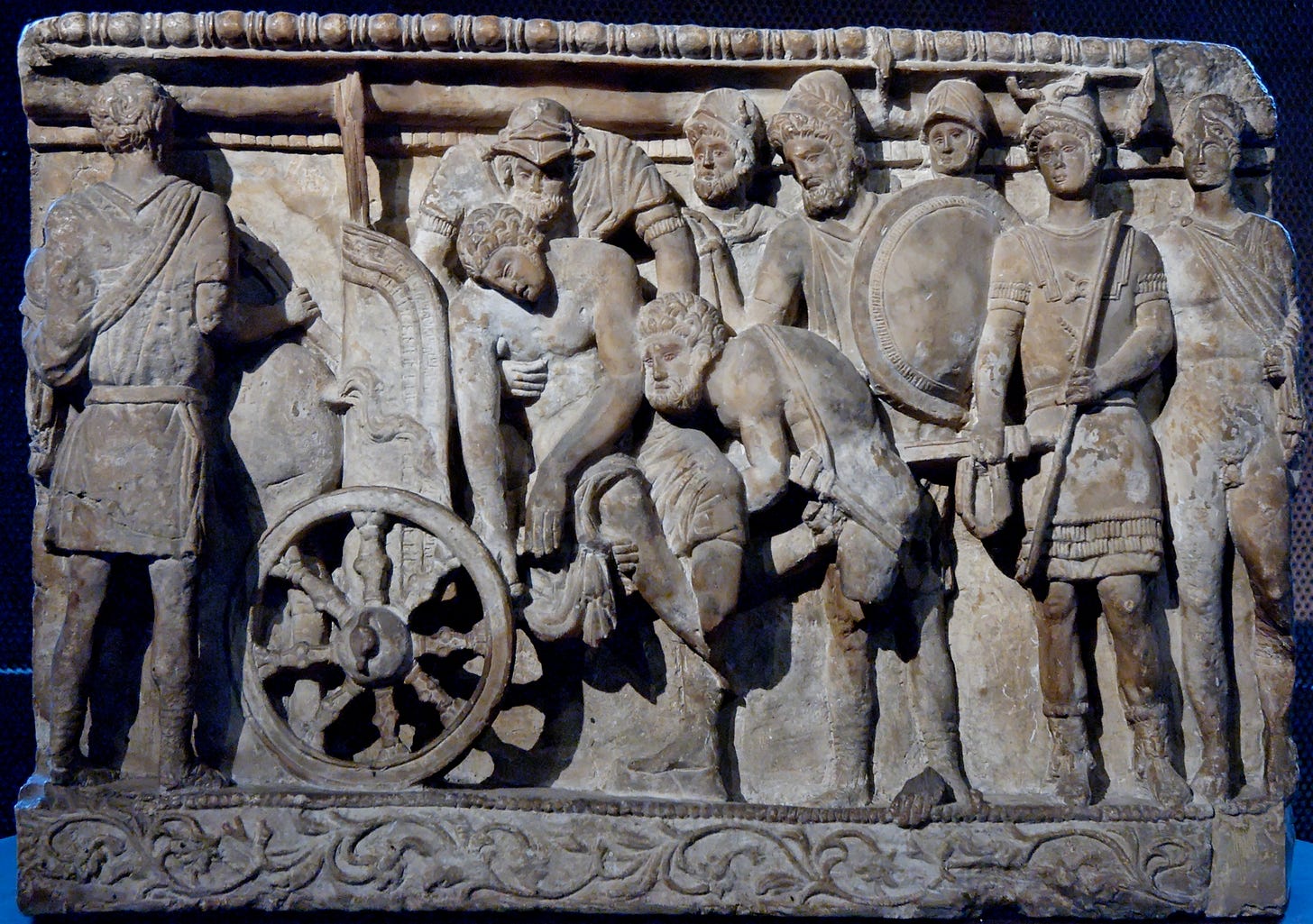
The book opens with Patroclus approaching Achilles, imploring him to act as the Greeks are pushed back toward their ships by the relentless Trojan assault led by Hector. The Myrmidon commander, withdrawn from the battle in a bitter feud with Agamemnon, remains unmoved by the suffering of his comrades. But Patroclus, unable to endure the slaughter, begs for permission to enter the fray himself—if not as Achilles, then at least in his likeness.
Achilles, still seething with wounded pride but not immune to the grief around him, agrees. He allows Patroclus to wear his armor—a symbolic and strategic act. It is Achilles’ glory that the Greeks and Trojans recognize in battle, and the mere sight of him, or rather what they think is him, may be enough to reverse the tide.
Yet, Achilles sets a clear limit: Patroclus must drive the Trojans back from the ships but go no farther. He is not to storm the walls of Troy nor pursue Hector. This caveat, born of foresight or perhaps subconscious dread, lays the foundation for the tragedy that follows.
Clad in the borrowed brilliance of Achilles' armor, Patroclus enters the battlefield, leading the Myrmidons in a devastating charge. The effect is immediate and electrifying. The Trojans, believing Achilles has returned, falter. Even Hector temporarily loses his nerve. The Greeks rally, their hope rekindled, and the momentum shifts.
What follows is a vivid sequence of violence and triumph. Patroclus fights like a man possessed, slaughtering foe after foe, even killing Sarpedon, a son of Zeus and a key ally of Troy. Sarpedon’s death is a moment thick with divine sorrow. Zeus, watching from Olympus, debates whether to spare his son, but ultimately relents to the greater order of fate. The gods may intervene, but they, too, are bound by forces beyond themselves. Sarpedon must die, and with him dies a part of Zeus’ paternal heart.
Zeus instructs Apollo to retrieve the body, and the battle swirls around the corpse, a microcosm of the war’s deeper conflict over honor, remembrance, and legacy. Yet, amid this, Patroclus violates Achilles' command. He presses on, intoxicated by victory, and begins his assault on the walls of Troy.
It is here that Book 16 pivots from triumph to catastrophe. Apollo, protector of Troy and agent of fate, intervenes directly. He strikes Patroclus, dazing him. Then, Euphorbus wounds him, and finally, Hector delivers the killing blow. The death itself is not swift but layered, echoing the epic’s sense that no great fall happens in a single stroke.
As Patroclus dies, he does not go quietly. He foretells Hector’s doom, prophesying that Achilles will avenge him. These dying words hang in the air, not only as a grim prediction but as the ignition of Achilles’ return to battle—his wrath no longer about personal slights but the pain of losing the dearest companion of his life.
The book closes with the stripping of Achilles’ armor from Patroclus’ corpse—a grim symbolic act. The glory of Achilles is now in Trojan hands. Patroclus is left unarmed, lifeless, and dishonored, though only for a moment. The cycle of vengeance is set into motion.
Throughout the book, the gods hover over the battle with a mixture of detachment and investment. Zeus mourns his son but yields to fate. Apollo protects Troy, Athena aids the Greeks. Their interventions often feel arbitrary, even cruel. Yet, what Homer reveals is not a theology of callous gods but a dramatic reflection of the inexplicable forces that govern human life—forces we might today call fate, chance, or the indifferent mechanisms of history.
The gods are personified forces of will and whim, yes, but they also stand in for the uncontrollable—the circumstances of birth, the inevitability of death, the randomness of success or failure in life and war. In this sense, the divine presence in The Iliad is less about religion and more about realism, a way of dramatizing the conditions under which human greatness and tragedy unfold.
At first glance, Book 16’s ancient heroics might feel remote from contemporary life. We do not fight wars with spears and chariots, and few of us are hemmed in by literal gods. But at its core, this chapter of The Iliad speaks to universal experiences: the tension between loyalty and autonomy, the consequences of pride, the cost of delayed action, and the heartbreak of loss.
Patroclus' decision to go into battle is driven not by arrogance but by compassion. He cannot watch others suffer. His bravery, though fatal, arises from a deep moral urge to protect. In this way, Patroclus stands as a figure of humanitarian courage, someone who steps into danger not for glory but for the sake of solidarity. How many modern lives reflect this same choice? Soldiers, medics, activists—people who move toward danger to alleviate suffering. They, too, are vulnerable to overreach, to the crushing wheel of circumstance.
Achilles’ choice to remain aloof and then his choice to allow Patroclus to fight in his stead reflect the moral hazards of delayed responsibility. How often in today’s world do we witness leaders who wait too long, whose indecision or pride costs others dearly? Achilles is not evil, but his pride is deadly. His arc is a lesson in emotional sovereignty—how our grievances can reverberate with public consequences.
The death of Patroclus also resonates in how we experience grief. Achilles' reaction, which we see more fully in Book 18, is one of devastation, but the seed is planted here. Patroclus is more than a comrade—he is the person who connects Achilles to his humanity. His death becomes a catalyst for change, a trigger for reflection. This is familiar to many: how the loss of a loved one can awaken something deeper within us, reorienting our lives in unexpected ways.
Finally, there’s the broader theme of identity and illusion. Patroclus wears Achilles' armor to inspire courage and fear, and for a time, it works. But in the end, illusion is not enough. The outer shell of a hero cannot protect against fate. In modern life, we, too, wear masks—titles, roles, personas. Sometimes, they empower us; sometimes, they lead us beyond our depth. Book 16 is a cautionary tale about stepping into another’s shadow and mistaking costume for invincibility.
Book 16 of The Iliad is one of the most gripping, emotionally charged, and symbolically rich chapters in the epic. It captures the moment when the personal becomes political, when the boundary between courage and recklessness blurs, and when friendship proves more potent than pride—but also more vulnerable to loss.
Through Fagles’ masterful translation, the ancient rhythms come alive with contemporary force. We do not need to be warriors to feel what Patroclus felt or to understand the stakes of his decision. The story teaches us about the fragility of identity, the consequences of silence, and how love for friends, causes, and people can drive us into both greatness and tragedy.
In a world still haunted by war, still shaped by pride and delayed action, still mourning its Patrocluses, Book 16 remains urgent and deeply human. Its legacy is not just literary—it is moral. And it endures because we, like the Greeks and Trojans, are always searching for meaning amid chaos, always trying to determine when to act, and always learning, too late, what our actions truly cost.
“So the bronze gear was stripped from Patroclus’ shoulders… Ares’ son, Hector, dragged it off in triumph.”
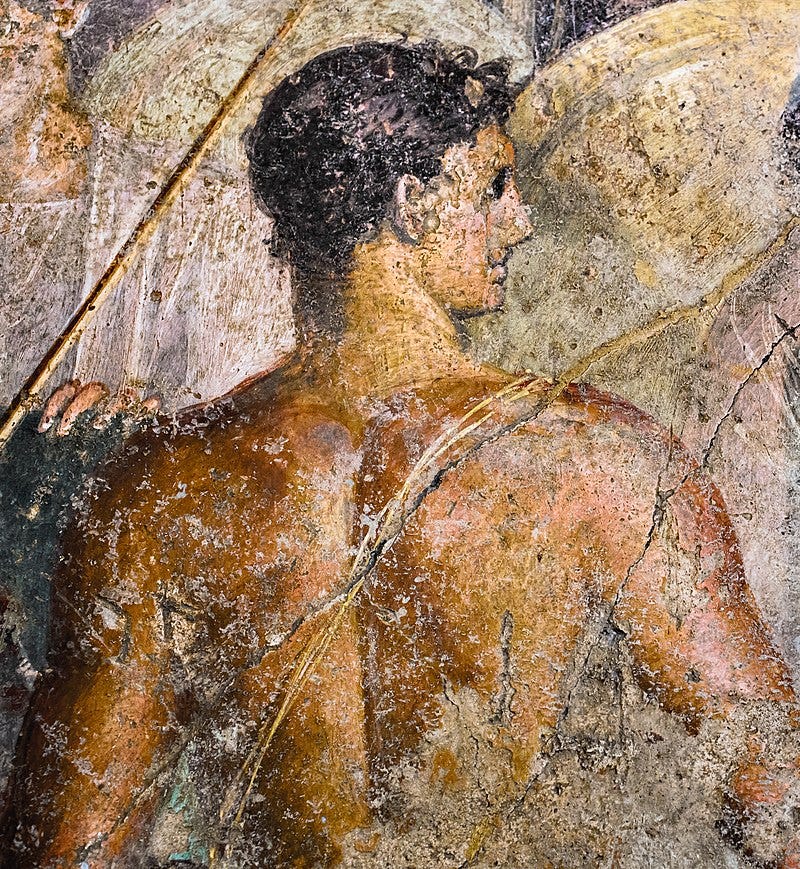
In the pages of Homer’s Iliad, war thunders across the plains of Troy, where gods clash and kings fall, where fate is woven into the very air warriors breathe. Amid the blood and glory, a quieter figure strides forward: Patroclus, son of Menoetius. He is not the strongest nor the most ferocious. He is not known for cunning like Odysseus or wrath like Achilles. Yet he is, paradoxically, the emotional heart of the epic. His death changes everything. His legacy, shaped more by friendship and compassion than by battle prowess alone, invites us to reconsider what it means to be heroic—not in the ancient sense of immortal glory, but in the profoundly human sense of loyalty, empathy, and sacrifice.
Patroclus’s existence is most securely rooted in myth, but like many figures of the Trojan War cycle, he may reflect the memory of a real Mycenaean warrior or nobleman, passed down through oral tradition. In Greek mythology, he is the son of Menoetius, one of the Argonauts, and a member of the royal house of Opus. His name—meaning “glory of the father”—hints at an inherited dignity and perhaps an expectation to embody a particular code of honor.
By the time Homer sings of him in the Iliad, Patroclus is more than just a companion to Achilles. He is the linchpin of the narrative's moral structure, a figure of gentleness within the brutality of war. Unlike many other warriors in Homer’s epic, Patroclus does not seek personal fame. He fights not for kleos (glory) but for compassion—for the sake of the suffering Greeks and, more importantly, for the love of his closest companion.
The friendship between Achilles and Patroclus is arguably the most emotionally charged relationship in the Iliad. Homer never clarifies the precise nature of their bond, leaving room for centuries of interpretation and debate. In ancient Greece, especially in Classical Athens, their relationship was often viewed through the lens of philia (deep friendship) or the eromenos/erastes dynamics—wherein one partner was typically older and the other younger, often within a mentorship and romantic context. By contrast, in modern readings, their bond is sometimes viewed as a platonic brotherhood or as romantic love in defiance of prevailing norms.
What is undisputed is the emotional intensity between them. Patroclus is the only one who can soften Achilles' rage. When the Greek army suffers under the fire of Hector’s advance, it is Patroclus who pleads with Achilles to act. Achilles refuses, stubborn in his prideful wrath, but grants Patroclus his armor—a decision that will lead to devastating consequences.
In this act, Achilles entrusts Patroclus with his very identity. The symbolic transfer of the armor reflects the intertwining of their fates. Patroclus does not wear it for personal glory; he wears it to protect others, to emulate the might of Achilles in a desperate moment. This selflessness is a striking contrast to the heroism of other warriors, highlighting the profound empathy at the heart of Patroclus’s character.
In Book 16 of the Iliad, Patroclus's death marks a turning point in the epic. Until this moment, Achilles has been absent from battle, consumed by rage over his quarrel with Agamemnon. The Greek forces falter without their champion. Patroclus dons Achilles’ armor and leads the Myrmidons into battle, pushing back the Trojans and even killing Sarpedon, son of Zeus. But his charge becomes reckless. Despite Achilles’ warning not to pursue Hector to the walls of Troy, Patroclus disobeys. He is ultimately slain by Hector, with the aid of Apollo and Euphorbos.
This death shatters Achilles. His lament is raw and transcendent, a moment when the great warrior’s invincibility collapses under the weight of grief. It is not the loss of Briseis or the dishonor from Agamemnon that finally rouses Achilles; it is the death of Patroclus. Achilles returns to battle not for his own sake but for the sake of Patroclus—a reversal of the traditional heroic arc. It is vengeance, yes, but vengeance born of love.
In literary terms, Patroclus functions as the catalyst of the narrative’s emotional core. Without him, Achilles is frozen in ego. With him gone, Achilles transcends his rage—only to become a vessel of divine fury. Patroclus, in dying, reminds both Achilles and the reader of what it means to be human.
Unlike Achilles, who is nearly invulnerable and descended from a sea goddess, Patroclus is mortal in every way. He is not the best of the Achaeans. Yet, in his final moments, he fights with astonishing valor. He kills many Trojans, including Sarpedon, whose death moves even Zeus to tears. His courage is undeniable, and yet it is rooted not in pride but in care. He acts because he cannot watch his friends suffer.
Patroclus’s warrior ethos is, therefore, different from that of many Homeric heroes. He does not desire eternal renown. He seems driven more by moral clarity than by glory. His final words to Hector—"you too will die”—are not boastful but prophetic, reminding the reader of the futility of all warfare, however noble it may seem.
In this way, Patroclus presents a different model of warriorhood: one grounded in compassion rather than competition. He is a forerunner of the reluctant hero, the empathetic soldier whose strength lies not in his sword but in his heart.
After Homer, Patroclus continues to appear in classical literature, though often overshadowed by Achilles. In Pindar, Aeschylus, and Euripides, his relationship with Achilles is more explicitly romantic. Plato, in the Symposium, references them as the ideal pair of lovers—proof of love’s power to inspire greatness and sacrifice.
In later literary traditions, especially during the Renaissance and Romantic periods, Patroclus receded somewhat into the background. However, he found new life in adaptations such as Shakespeare’s Troilus and Cressida and modern retellings. In recent years, novels like Madeline Miller’s The Song of Achilles have reclaimed Patroclus as a protagonist in his own right, emphasizing his inner life, his love for Achilles, and his moral depth.
In these interpretations, Patroclus becomes a symbol of gentle heroism, emotional courage, and integrity in the face of overwhelming violence.
In the chaos of the Iliad, with its clashing armies and gods meddling in mortal lives, Patroclus represents something often lost in ancient epic: the primacy of kindness. His story is not one of domination but of devotion. He is not defined by conquest but by connection. In a modern world still grappling with the cost of war, the value of empathy, and the complexity of human bonds, Patroclus speaks directly to us.
He is a figure of moral action—not perfect, but principled. His decision to fight is born of necessity, not ambition. He sees suffering and steps forward, even at the cost of his life. This ethic is strikingly modern. In a world that often rewards ego and aggression, Patroclus reminds us of the power of quiet courage.
Moreover, Patroclus is deeply relatable. He lives in the shadow of a greater hero, yet he defines himself through small acts of compassion. He questions, hesitates, and ultimately chooses sacrifice. These are not the traits of a demigod but of a human being trying to do right in a broken world.
His friendship with Achilles—whether romantic or fraternal—is a model of intimacy, loyalty, and emotional openness that transcends time. It challenges toxic ideals of masculinity and presents a more vulnerable, honest connection between men. In this way, Patroclus becomes not just a hero of the past but a mirror for the present.
Patroclus dies long before the war comes to an end. His funeral, held with solemn rites and fierce mourning, becomes a sacred pause in the machinery of violence. Even Achilles, after slaying Hector, returns to the body of his beloved friend to perform burial honors. The ashes of Achilles and Patroclus, we are told, are mixed, their tomb shared. It is a symbolic gesture of unity that even death cannot sever.
In ancient terms, Patroclus achieves kleos through death, but in truth, he earns a different kind of immortality. He is remembered not for conquest but for character. He is a reminder that heroism comes in many forms—not only in strength and strategy but in empathy, loyalty, and love.
To read Patroclus today is to encounter the human soul at war with the world around it. In the clamor of swords and the cries of gods, his voice is quieter but no less enduring. It says: to fight for others is nobler than to fight for self. To love is the greatest strength of all.
Here are a few questions to think about. Feel free to discuss these or any others that may be of interest.
How does Patroclus’ wearing of Achilles’ armor affect the tide of battle?
How does Hector respond to killing Patroclus? Does he see it as a straightforward military victory, or is there a deeper emotional or psychological response?
What does Book 16 suggest about the cost of war—emotionally, morally, and spiritually?
Reading Assignment for Next Week
We will cover Book 17. In the Fagles translation, this chapter is entitled Menelaus’ Finest Hour and covers pages 442-466. In the Wilson translation, it is called Battle for a Dead Man and covers pages 411-438.
Beyond the Bookshelf is a reader-supported publication. If you are looking for ways to support Beyond the Bookshelf, please visit my support page and see the ways you can help continue the mission of exploring the connection between life and literature.
And I have a tip jar available for those who prefer. Thank you very much.
Until next time,
Previous articles in this series:
If you are a new subscriber or missed any of the previous articles in this series, you can catch up at the link below:
All opinions in this essay are my own unless otherwise noted. Additionally, I have highlighted all sources in the text if needed.





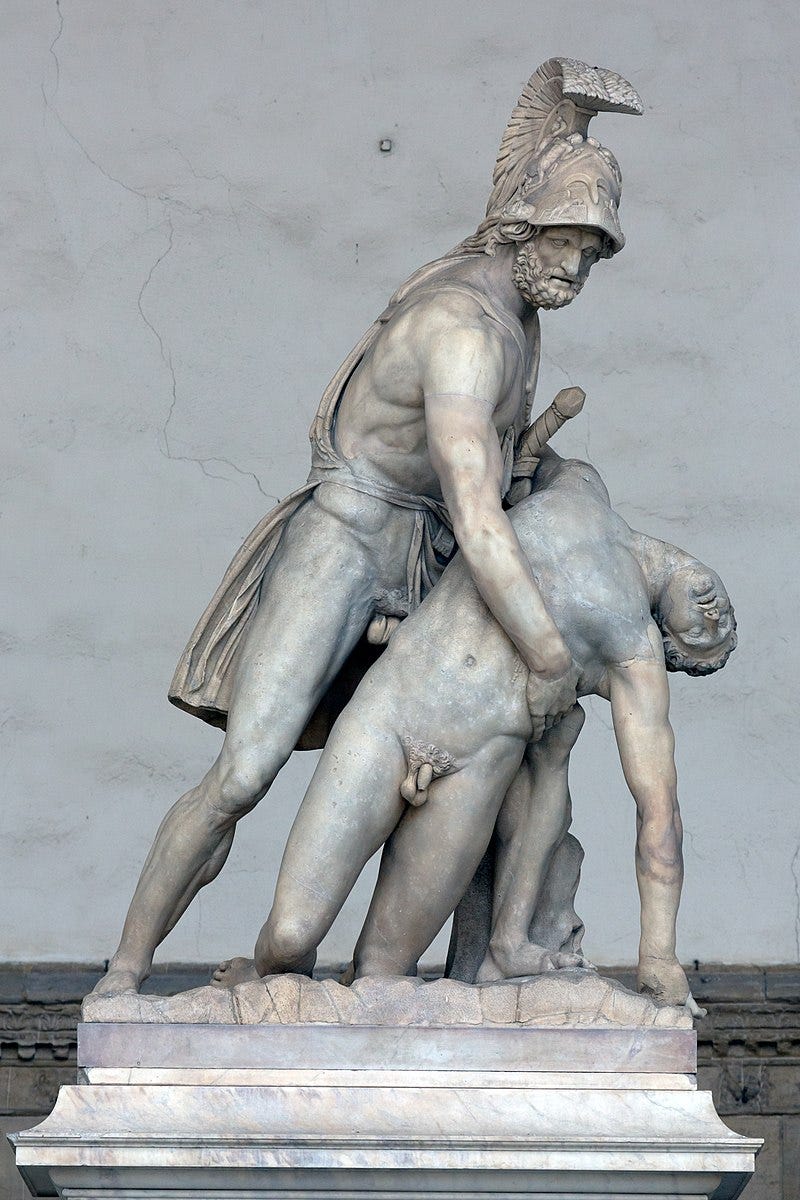




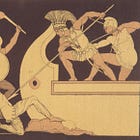
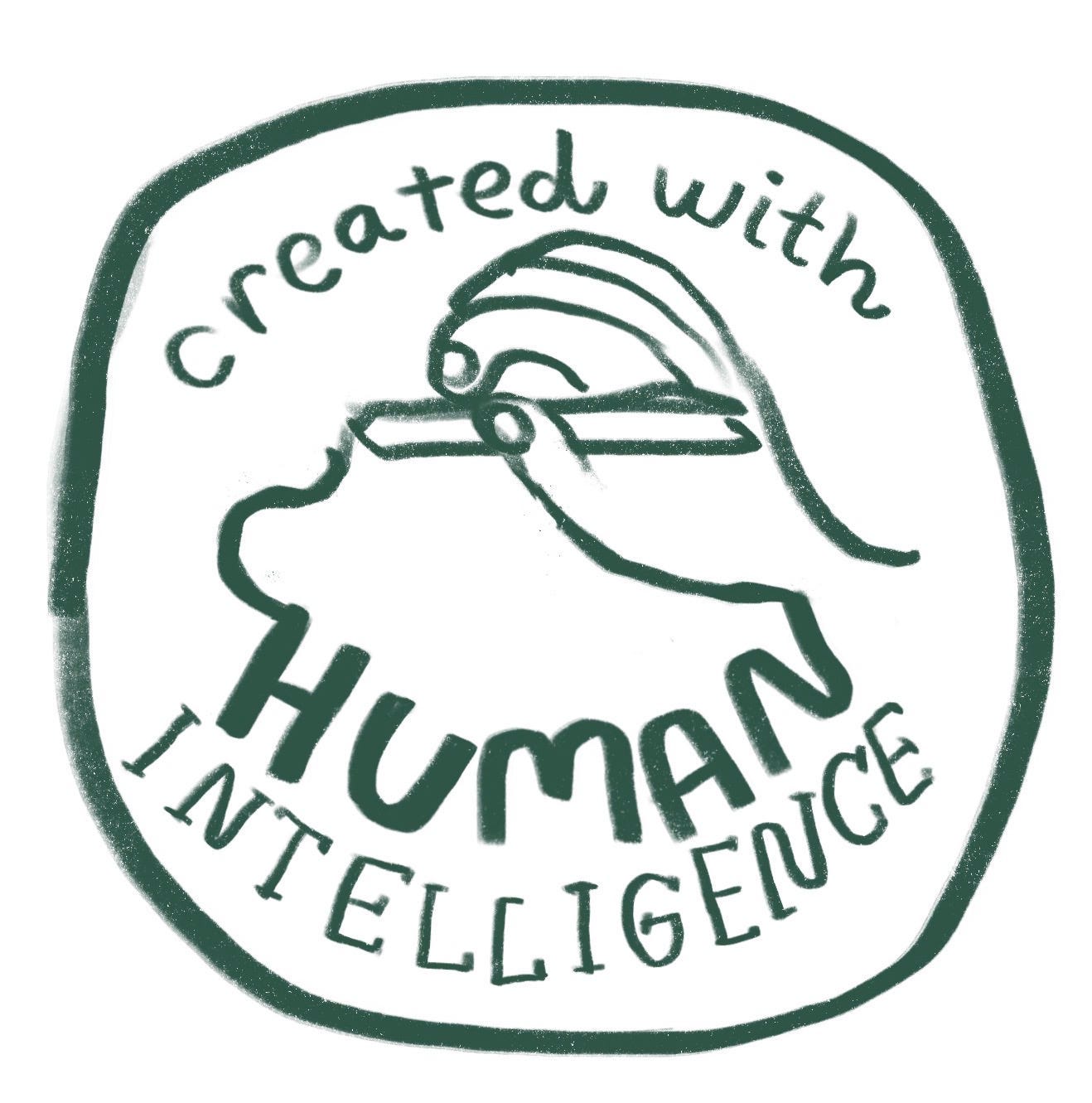
This book cured the monotony I was starting to feel with the last chapter. Fagles’ title though…was a choice. I wonder how the impact would have been without the spoiler! I mean, it does play into the idea that his fate was sealed, but on the other hand he was on a rampage up til his final moments and one could believe he’d survive. And now I have to add Troilus and Cressida to my overly burdened TBR…thanks. 🤣 Excellent summary though!
I’m so glad you mentioned Song of Achilles as a modern retelling of Achille’s and Patroclus’s relationship. Such a beautiful, devastating book. Highly recommended companion reading for everyone on this slow read